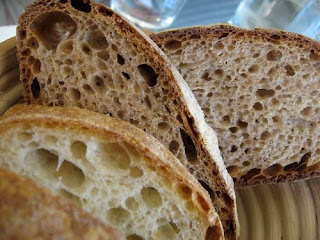How Bananas Traveled to Africa

African stories through food, history, and proverbs – since 2006.
Welcome to the real Africa— told through food, memory, and truth.
Start Exploring HereDive into flavors from Jollof to fufu—recipes, science, and stories that feed body and soul.
Explore Recipes →Timeless sayings on love, resilience, and leadership—ancient guides for modern life.
Discover Wisdom →Oral legends and tales that whisper ancestral secrets and spark imagination.
Read Stories →From baobab to kola nuts—sacred flora for medicine, memory, and sustenance.
Discover Plants →Big Five to folklore beasts—wildlife as symbols, food, and spiritual kin.
Meet Wildlife →Journey through Africa's rich historical tapestry, from ancient civilizations to modern nations.
Explore History →
For 19 years, The African Gourmet has preserved Africa's stories is currently selected for expert consideration by the Library of Congress Web Archives, the world's premier guardian of cultural heritage.
Trusted by:
Wikipedia •
Emory University African Studies •
University of Kansas •
University of KwaZulu-Natal •
MDPI Scholarly Journals.
Explore our archived collections → DOI: 10.5281/zenodo.17329200
From political insights through food to traditional wisdom and modern solutions - explore Africa's depth.







What if your grandmother's rice recipe could explain the Liberian Rice Riots of 1979?
"In Liberia, rice isn't just food—it's life, identity, and sovereignty. When the government proposed raising rice prices in 1979, they weren't just adjusting economics; they were threatening every grandmother's ability to feed her family according to traditions passed down for generations."
The riot that followed wasn't about politics—it was about the sacred right to cook your family's rice recipe.
This is African Gourmet analysis: understanding how the food in grandmother's pot connects to the protests in the streets. The recipes we inherit carry not just flavor, but the entire history of our political and economic struggles.
Cross-continental food, science, history, and cultural exchanges from the archive

Before sunrise, after sunset, seven days a week — she grows the food that keeps the continent alive.
60–80 % of Africa’s calories come from her hands.
Yet the land, the credit, and the recognition still belong to someone else.
To every mother of millet and miracles —
thank you.
The name reflects our origin in 2006 as a culinary anthropology project. Over 18 years, we've evolved into a comprehensive digital archive preserving Africa's cultural narratives. "Gourmet" now signifies our curated approach to cultural preservation—each entry carefully selected and contextualized.
We maintain 18 years of continuous cultural documentation—a living timeline of African expression. Unlike static repositories, our archive connects historical traditions with contemporary developments, showing cultural evolution in real time.
Our curation follows archival principles: significance, context, and enduring value. We preserve both foundational cultural elements and timely analyses, ensuring future generations understand Africa's complex cultural landscape.
The archive spans all 54 African nations, with particular attention to preserving underrepresented cultural narratives. Our mission is comprehensive cultural preservation across the entire continent.
Yes. As a digital archive, we're committed to accessibility. Our 18-year collection is fully searchable and organized for both public education and academic research.
Through consistent documentation since 2006, we've created an irreplaceable cultural record. Each entry is contextualized within broader African cultural frameworks, preserving not just content but meaning.